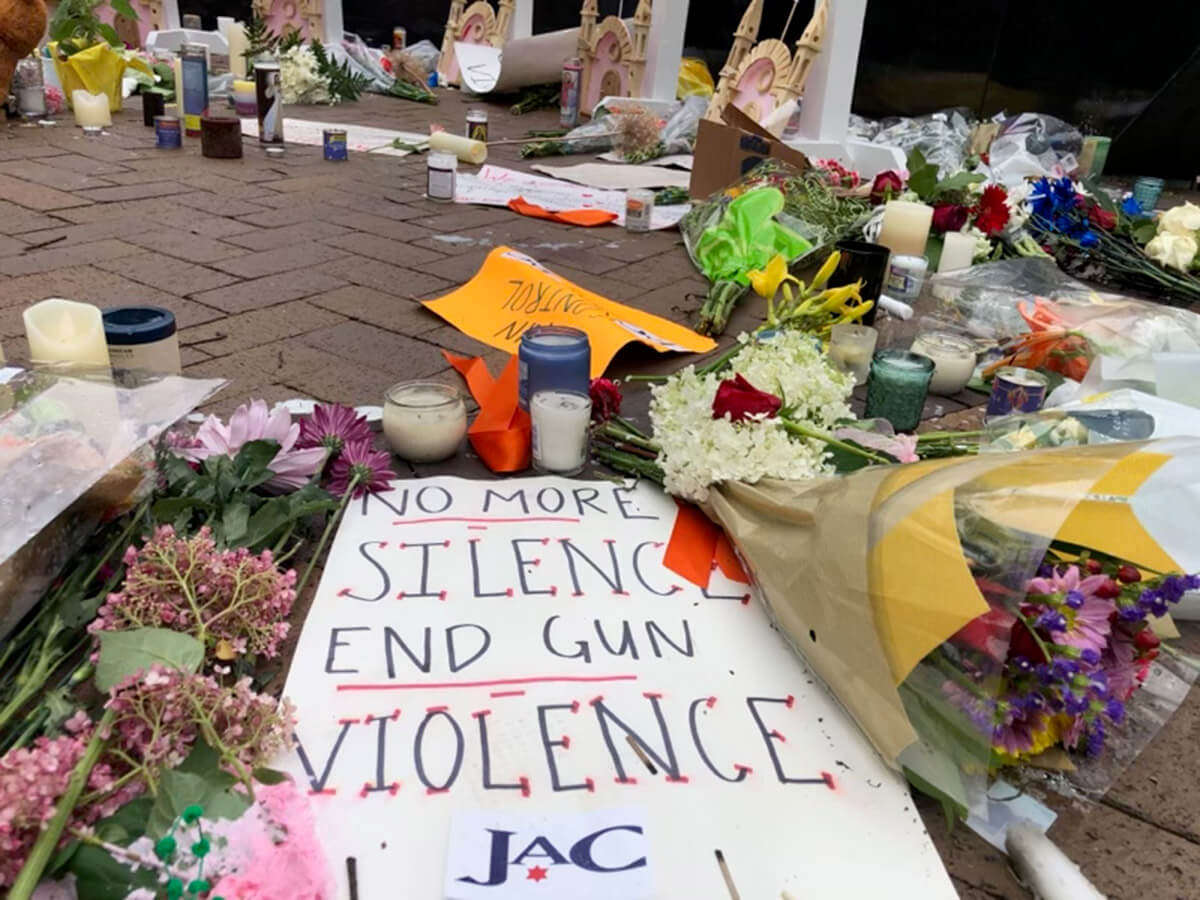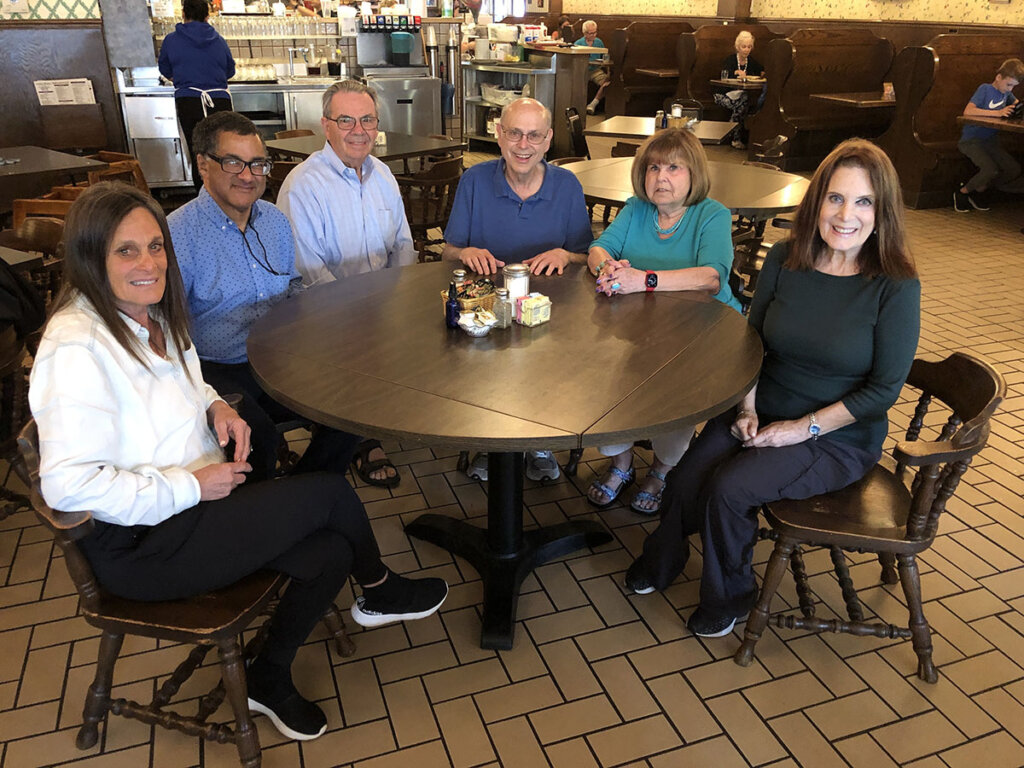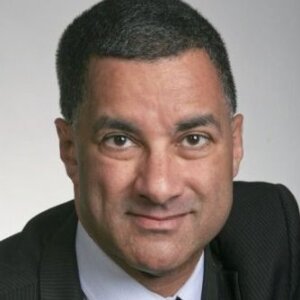‘A much more dangerous world’: A gathering of Highland Park Jews contemplates the July 4 massacre
Jews who spent most of their lives in the city try to make sense of the violence, and come to terms with a broken bubble of security

Signs against gun violence are placed at a memorial for the victims of a mass shooting at a Fourth of July parade, on July 6, 2022 in Highland Park, Illinois. Photo by Robin Washington
HIGHLAND PARK, Ill. – The Country Kitchen was open for business on Wednesday, a block down Central Avenue from where the street remained cordoned off with police tape from the July 4 shooting.
The tables were also open — for yakking and speculation: some wild, some informed by personal connections — of what would drive a 21-year-old man to a rooftop to shoot and kill his fellow townspeople. That was followed by wondering what to do next, especially for Jews who have long been comfortable in the affluent Chicago suburb of nearly 30,000.
At our table is Marc Slutsky, a psychiatrist, my guest to a gathering with my second cousins Susan Birkenstein Ori, Sally Birkenstein Eide and her husband, Gary; and their friend, Sonia Geffen. They’ve all spent most of their lives in Highland Park. All of us are in our 60s or beyond.
Later that day, 21-year-old Robert E. Crimo III, would confess to the mass shooting, in which at least five of the seven people killed were part of Jewish families.

Slutsky first broke down Crimo family dynamics, based on news reports. (Slutsky has not examined him personally.)
“I know firsthand that the school has an excellent special ed program that evaluates kids,” he said of Highland Park High School, which Crimo reportedly attended for one year.
“As a psychiatrist, I know there’s nobody better than teachers picking out a kid that needs to be evaluated,” he continued, noting Crimo’s teachers had done just that. “What was reported was the parents took him out and home-schooled him and didn’t take advantage of the resources.”
Crimo’s father is also reported to have sponsored a gun-permit application for his son, leading to a discussion of guns and mental health.
“Pragmatically, you can’t go only after one,” Slutsky continued. “I don’t know anybody who’s for more strict gun laws who isn’t for more money for mental health. They’re necessarily complementary.”
Ori wondered if the community’s affluence could have affected the more relatively modest Crimo, whose father ran a convenience store and deli, which my tablemates recalled as popular with teens, including some of their own kids. It eventually folded, with the elder Crimo mounting unsuccessful campaigns for mayor against Nancy R. Rotering, who now holds that office.
“Twice,” Geffen said.
The local Jewish community
The past examined, if unresolved, the conversation moved to the future — specifically, what Jews in Highland Park, a suburb where Jews make up nearly half the population, should do and feel now.
Geffen said she was feeling uncomfortable before the shootings.
“The day before July 4 — July 3 — I said to my daughter, ‘You know, we haven’t had any mass shootings here in Illinois,’” she said. “And this happened. It’s like an omen.”
Slutsky said the tragedy breaks the bubble of security most Jews have felt in the town.
“I think the Highland Park Jewish community is looking at this as the most personal and intense version of what’s going on in the country,” he said, “and we thought somehow we had gotten past all of our history, that somehow we had arrived at a place where we were safe.
“When we look at the court rulings on prayer in schools, when we look at women’s rights and the abortion issue, when we look at the guns — all of a sudden we say that this isn’t the way we thought things were going.”
Nor where they thought a horrific event such as Monday’s would happen.
“It used to be other people — guns, whatever. It was in Chicago, on TV,” Geffen said. “It’s here.”
And it wasn’t committed by an outsider, but one of Highland Park’s own — who, if not specifically targeting Jews, managed to exceed the town’s Jewish percentage in his victims.
For Jews, that especially brings it home, said Slutsky, with a “realization the world is not as different than it was for our grandparents and great-grandparents. This is a much more dangerous world, and forces that we thought were left elsewhere are now very apparent in America.”






















